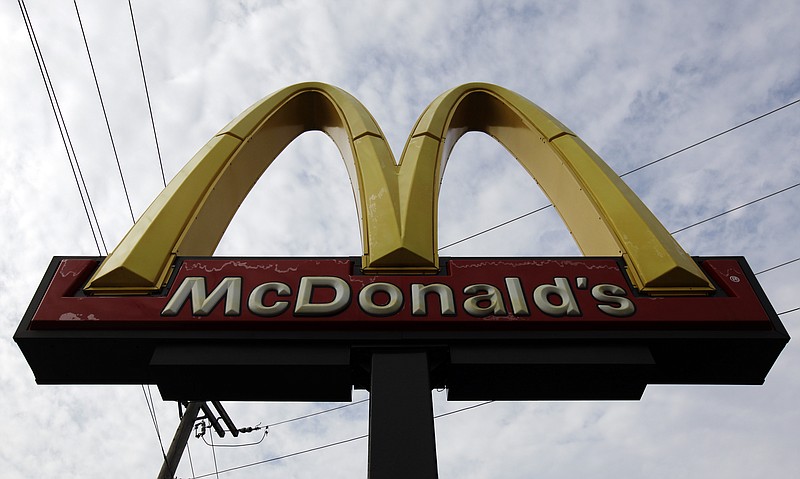McDonald's settles discrimination suit
McDonald's will pay $33.5 million to a former baseball player who owns multiple franchises to end a lawsuit he brought against the company accusing it of racial discrimination.
Herb Washington, who is Black, owned more than a dozen restaurants in Ohio and Pennsylvania when he filed a lawsuit in February that said the company has treated white owners more favorably and denied him the opportunity to buy restaurants in more affluent communities.
McDonald's said in a statement Thursday that the amount it was paying Washington for 13 franchises was "no more than what we deem a fair price for the value of the restaurants," Cleveland.com reported.
"While we were confident in the strength of our case, this resolution aligns with McDonald's values and enables us to continue focusing on our commitments to the communities that we serve," the company said, adding that "discrimination has no place at McDonald's."
Washington agreed to drop the lawsuit and to no longer be a franchisee as part of the settlement agreement.
The lawsuit filed in U.S. District Court in Youngstown said McDonald's sought to steer Washington toward stores located in poorer neighborhoods and that "Black owners average around $700,000 less in annual sales per store than white owners."
The news outlet reached out to attorneys for Washington in Cleveland and New Orleans for comment.
Last week, the company announced it would spend $250 million over five years to recruit and support franchise owners from minority communities, the news outlet reported.
Boeing suspends vaccine mandates
Boeing on Friday announced internally that it's suspending the vaccination requirement for all U.S.-based employees.
The company adopted a vaccine mandate in October to ensure compliance with the federal executive order that required all employees of federal contractors to be vaccinated.
The mandate faced considerable opposition from a vocal minority of Boeing workers, some of whom insisted they would lose their jobs rather than comply.
In an internal company announcement, Boeing told employees its decision to suspend the mandate "comes after a detailed review of a U.S. District Court ruling earlier this month that halts the enforcement of a federal executive order requiring vaccinations for federal contractors, a recent Executive Branch directive not to enforce the order on those contractors and a number of state laws which limit an employer's ability to impose mandatory vaccine requirements."
The statement said that currently "over 92% of the company's U.S.-based workforce having registered as being fully vaccinated or having received a religious or medical accommodation."
That implies 8%, or about 10,000 U.S. employees, were under threat of possible termination under the mandate.
Melania Trump offers non-fungible tokens
Former first lady Melania Trump launched a venture this week selling non-fungible tokens that must be paid for with Solan cryptocurrency, currently valued around $180 each.
Trump said she will release NFTs "in regular intervals" on her website, with a portion of the proceeds going to foster children. The press release announcing the venture did not say what percentage of the revenue or pr will be donated.
Aaron Dorfman, president and CEO of the National Committee for Responsive Philanthropy, said when a company fails to disclose how much they are donating from a product or venture, "It's a huge red flag."
Union objects to vote in Starbucks unionization
The union vying to represent Starbucks employees is objecting to the results of elections at two Buffalo-area stores.
The union says the coffee retailer waged a "shock and awe" campaign meant to dissuade workers from voting to unionize. The claims are made in objections filed with the National Labor Relations Board late Thursday.
Starbucks denies the accusations. Employees at a Buffalo Starbucks voted in favor of a union last week, becoming the first in the U.S. to do so. But Workers United says the company's intimidation tactics affected the other stores where votes either failed or weren't immediately determined. The NLRB will decide whether to schedule a new election.
- Compiled by Dave Flessner
